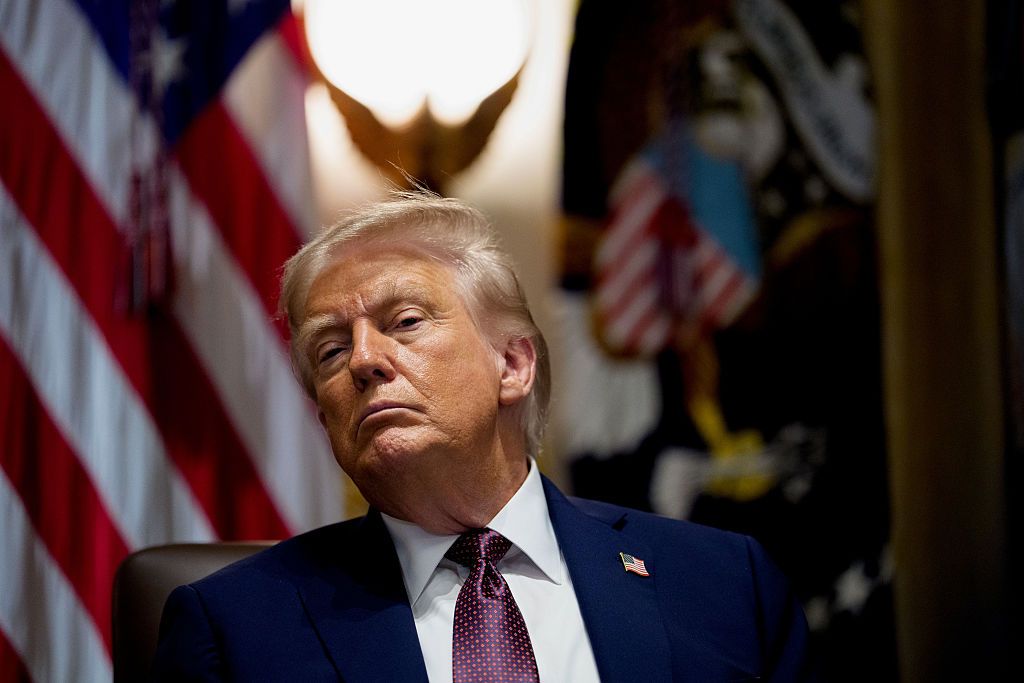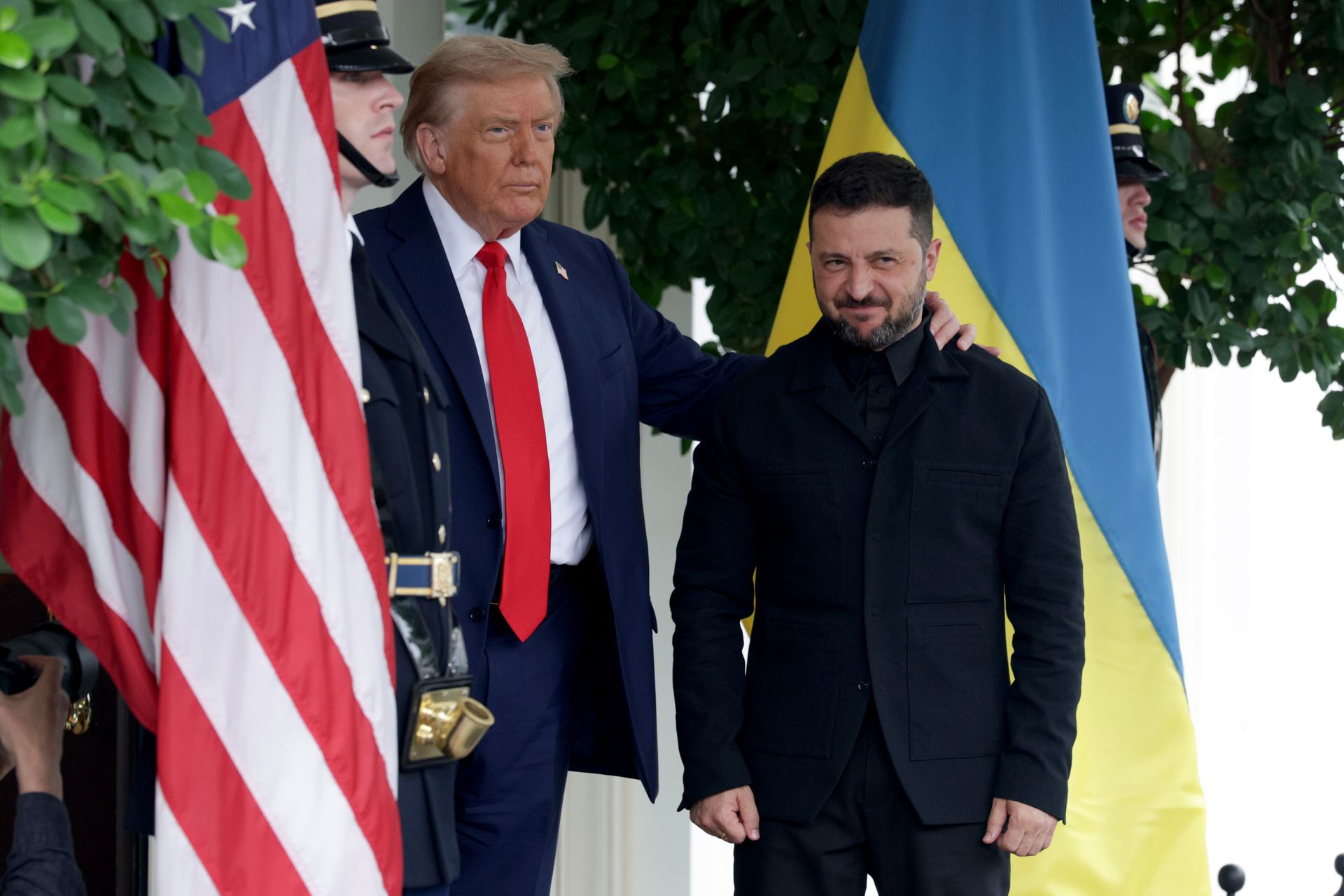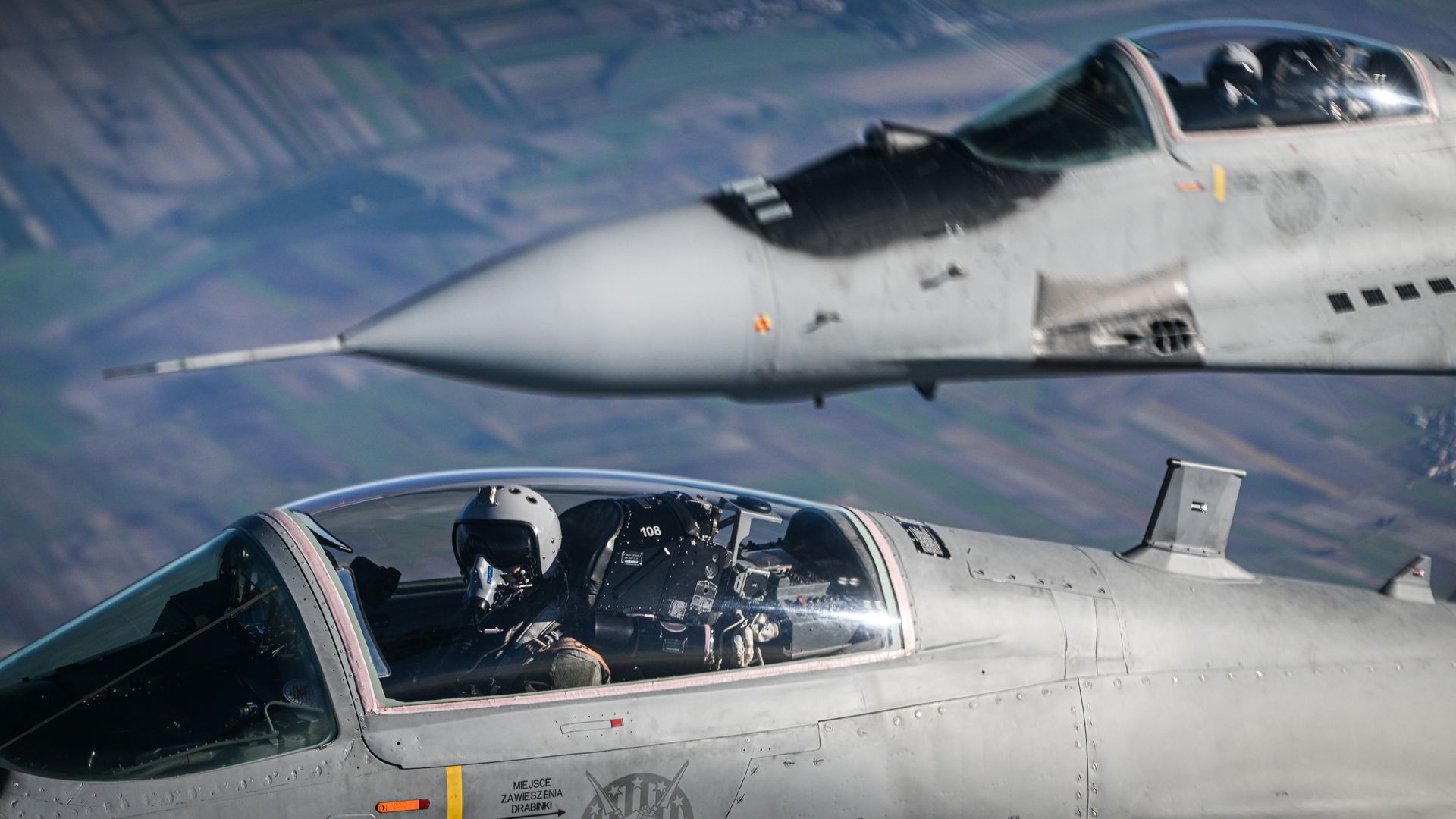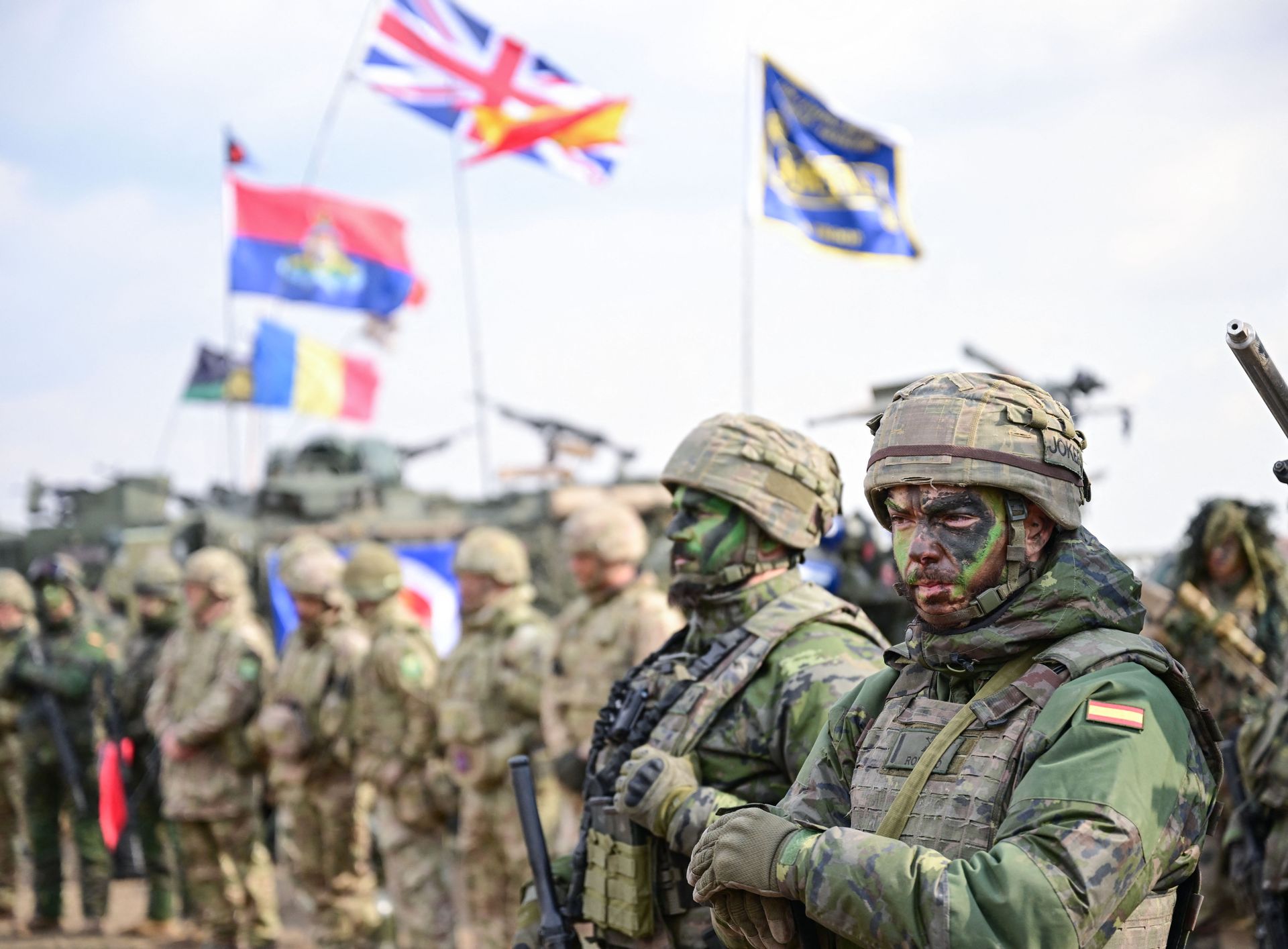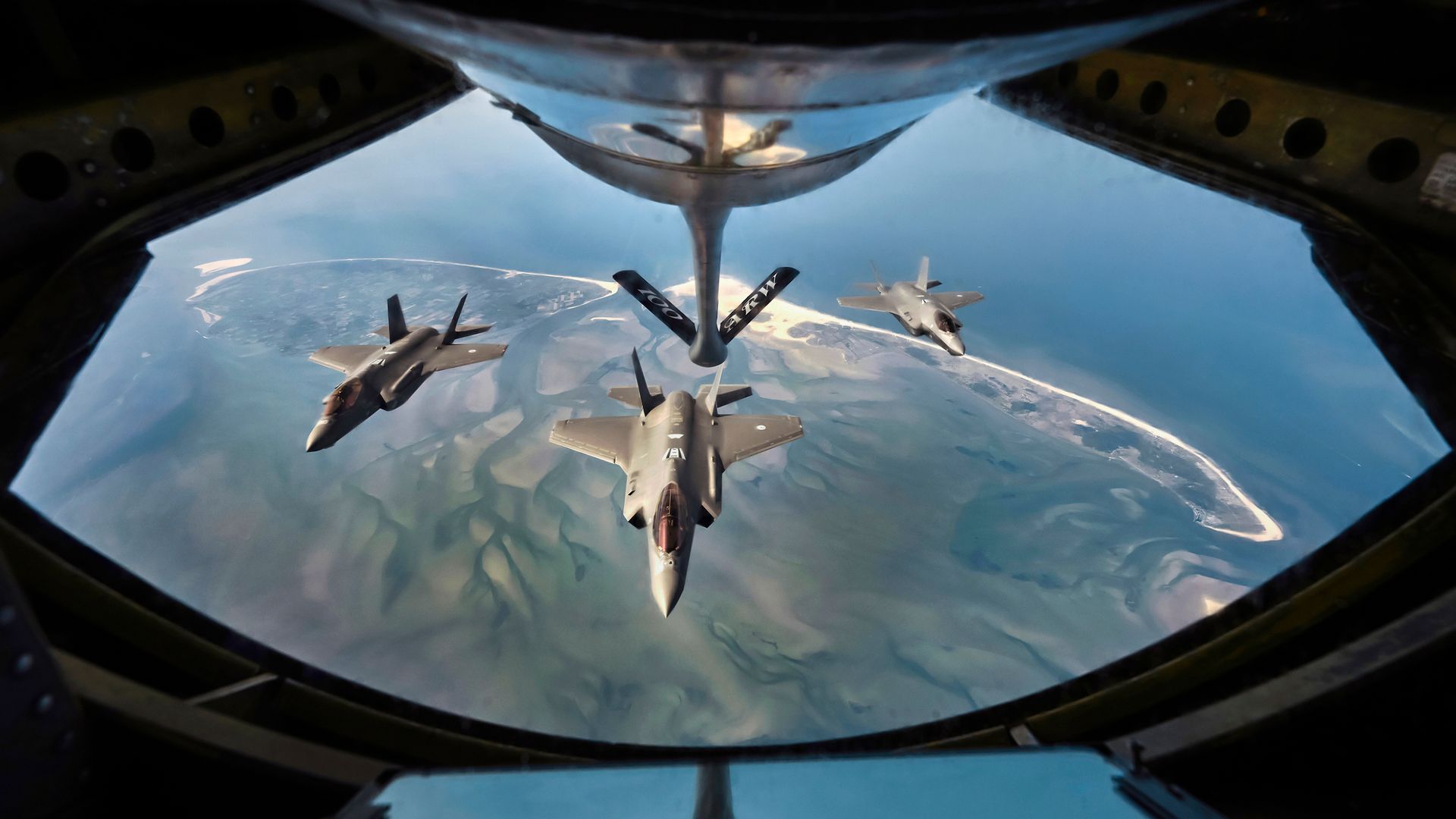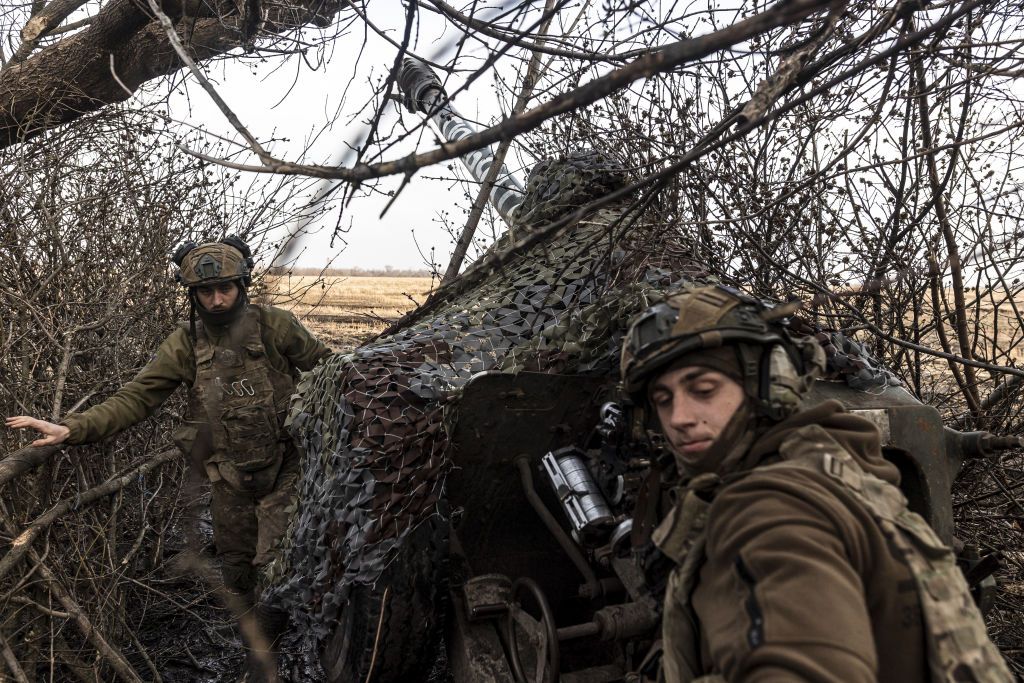Ukrainian, European leaders push Trump to change tone on Russia. Will actions follow?

U.S. President Donald Trump listens to a reporter’s question during a bilateral meeting with President Volodymyr Zelensky at the 80th session of the United Nations General Assembly at UN headquarters in New York City, U.S. on Sept. 23, 2025. (Chip Somodevilla / Getty Images)
U.S. President Donald Trump's statements and public posts following his latest meeting with Volodymyr Zelensky have been… different.
Kyiv can "fight and win all of Ukraine back in its original form," Trump wrote on Sept. 23, followed by a post by the White House with the president’s quote — “(Zelensky) a brave man, and he's putting up one hell of a fight.”
Trump added that Russia is a "paper tiger" with a crumbling economy unable to win the war against Ukraine. He also said that NATO countries should shoot down Russian aircraft violating the bloc's airspace.
Experts agree that these are the most pro-Ukrainian statements made by Trump so far. However, it is unclear if Trump's statements will lead to any action — such as sanctions or tariffs targeting Russia or an increase in weapons supplies to Ukraine.
"I think this is attracting much more attention than it deserves," Ruth Deyermond, senior lecturer in post-Soviet security at King's College London, told the Kyiv Independent. "People tend to get excited when Trump says something even mildly positive about Ukraine or critical of Russia — which, in itself, tells you how far the Trump administration has moved away from the U.S.’s previous support for Ukraine and opposition to Russian aggression."
The rhetoric stood in sharp contrast with Trump's constant attacks on Zelensky and parroting of Russian propaganda narratives just weeks ago.
One of the reasons behind the rhetoric is Trump's frustration with Russian President Vladimir Putin's refusal to end the war or reach a compromise with Ukraine, analysts say. Russia's blatant violations of NATO's airspace in recent weeks could also have been a factor.
Those who spoke with the Kyiv Independent warn that Trump has regularly vacillated between backing Ukraine and making pro-Russian statements, and he may shift back to Kremlin-friendly rhetoric in the future.
A lot of good words
Trump's pro-Ukrainian statements were made following a meeting with Zelensky on the sidelines of the 80th United Nations General Assembly in New York on Sept. 23.
"I think Ukraine, with the support of the European Union, is in a position to fight and win all of Ukraine back in its original form," he said in an apparent reference to the country's internationally recognized borders.
He then even suggested that Ukraine could "even go further than" its borders — an apparent reference to Ukrainian operations inside Russia.
Trump continued that "Russia has been fighting aimlessly for three and a half years, a war that should have taken a real military power less than a week to win."
"This is not distinguishing Russia," Trump added. "In fact, it is very much making them look like 'a paper tiger'... Putin and Russia are in big economic trouble, and this is the time for Ukraine to act."
Ukrainian political analyst Volodymyr Fesenko said that "there has never before been this level of positive rhetoric toward our country and toward Zelensky."
The reaction from Ukrainian officials behind closed doors has ranged from cautious optimism to outright joy.
Frustration with stalled peace talks
Experts say that Trump's frustration with Putin is one of the reasons behind his recent rhetoric.
In March the U.S. and Ukraine reached an agreement on an unconditional 30-day ceasefire but Putin rejected it, instead setting conditions that effectively amounted to Kyiv's capitulation.
Trump and Putin also failed to agree on a ceasefire or peace deal at a meeting in Alaska on Aug. 15.
After the meeting, Trump talked repeatedly about potential land swaps between Ukraine and Russia and an agreement on security guarantees for Ukraine. He also said that a trilateral meeting between him, Zelensky and Putin or a bilateral one between the Russian and Ukrainian leaders were possible.

However, no ceasefire or peace agreement has materialized so far as Putin has refused to compromise. Nor has the Russian president agreed to meet Zelensky.
Putin's intransigence could have triggered Trump's recent statements.
"These are certainly the most disparaging public remarks that we have seen Trump make about Russia," Jenny Mathers, a lecturer in international politics at the U.K.'s Aberystwyth University, told the Kyiv Independent. "They probably reflect Trump's growing frustration with his failure to bring Putin to the negotiating table and cross off 'end the war in Ukraine' from his to do list."
Oleksandr Merezhko, head of the Ukrainian parliament's foreign affairs committee, argued that Trump "has simply realized that he cannot stop Russian aggression given Putin's intransigence."
Fesenko argued that Trump’s statement was "a message directed at Putin: 'Do you want to keep waging this war?"
"But in that case, Europe will keep financing Ukraine, and NATO will continue to support it," Fesenko continued. "They’re fighting very well, they’re holding you back, you’re not going to win this war. It's better to return to the negotiating table."
The recent tensions between NATO and Russia could also have prompted Trump to take a tougher stance. Russian drones and aircraft violated the Polish, Romanian and Estonian airspace in recent weeks, and several other NATO countries had experienced similar violations before.
“(Trump’s statement) can be linked to those violations of NATO countries’ airspace indeed,” Volodymyr Dubovyk, head of Odesa National University's Center for International Studies, told the Kyiv Independent. “Trump sees that Putin is not interested in de-escalation. So Trump would look weak if he did not react somehow.”
Samantha de Bendern, a Russia expert at Chatham House, said that “Trump is now angry with Putin” and “is beginning to realize that Putin is making fun of him and making him a fool on the international stage.”
Ukrainian diplomacy
Mathers also attributed Trump's recent rhetoric to "sustained lobbying by Ukraine and its European supporters."
"It may also have something to do with the fact that he spoke to President Zelensky while at the U.N. (on Sept. 23), as well as being surrounded by European leaders who support Ukraine," she said. "Trump is notoriously influenced by the last person he spoke to."
Previously Trump also met with Zelensky and European leaders at the White House on Aug. 18 to discuss security guarantees for Ukraine. Trump's Kyiv-friendly rhetoric in August sharply contrasted with his clash with Zelensky at the White House in February.
Fesenko said that Trump's pro-Ukrainian rhetoric "is the result of our active diplomacy."

"This was already Zelensky’s fifth meeting with Trump during his second term as president," he said. "I believe there are very few current world leaders who have met with Trump this often. This is ultimately yielding some results — at least in terms of gradually shaping positive rhetoric toward Ukraine. It’s the work of the President’s Office, the government, and our ambassadors."
Trump's Ukraine Envoy Keith Kellogg, who is seen as the most Kyiv-friendly member of Trump's team, could also have had an impact, according to Fesenko.
Kellogg has regularly visited Ukraine and informed Trump about Russia's economic and military situation, he said.
Military and economic situation
The situation on the front line could have prompted Trump to doubt Russia's invincibility.
Although Russia has made advances over the past months, they have mostly been small, and it has so far failed to capture key Ukrainian strongholds like Kupiansk, Kostyantynivka, and Pokrovsk.
Ukraine has even managed to counterattack and gain territory in some areas, such as Sumy Oblast and near the town of Dobropillia in Donetsk Oblast.
"I think Trump is being briefed about this," Fesenko said. "He doesn’t go into the details, but it’s been explained to him that Russia has no major successes in Donetsk Oblast. That gave Trump a reason to believe that Russia is not winning."
Trump also mentioned Russia's deteriorating economy in his recent remarks. Russia has experienced economic stagnation, rising budget deficits, and oil product shortages in recent months.
"The emphasis is clearly on the worsening state of the Russian economy," Fesenko said. "And if previously Trump said that we (Ukraine) had no cards, now it's more of a hint to Putin: you have no cards now, and the situation is getting worse."
Trump's pendulum
However, analysts caution that Trump has frequently swung between supporting Ukraine and expressing pro-Russian views, and could revert to a more Kremlin-aligned stance.
The Telegraph and Reuters reported on Sept. 23-24 that Trump's statements may mean that he is distancing himself from the peace process in Ukraine rather than that he is committing to help Kyiv.
"I believe that yesterday’s round of the struggle over Trump ended in our favor," Fesenko said. "But this is far from the final round, and the tug-of-war over Trump will continue."
He added that "Putin will now try to restore his influence over Trump" and will likely push for another meeting with the U.S. president.

Dubovyk said that "we should not rush to conclude that Trump suddenly saw the light.”
"His tweet is quite pointed, indeed, and also long and reasonably well structured," he told the Kyiv Independent. "But that is not how one changes his position. This is not proof by itself. It would need to be followed by actions. So far, there was nothing as to what actions he is ready to take to back up this one tweet by particular steps.”
Meanwhile, Deyermond said that "nothing that Trump said on Tuesday suggested that he was interested in doing anything at all to help Ukraine win."
"I think there is no chance of the Trump administration sanctions on Russia now or at any point in the future," she added. "Trump has talked about them for months and then ignores his own deadlines. If he were serious about punishing Russia for failing to move towards peace, he would have done it long ago."
Merezhko was more optimistic, saying that "the fact that Trump believes in us is important."
"This is certainly a very positive statement from Trump for Ukraine," he said. "However, in my view, it's important not only to pay attention to Trump's statements — which can change — but also to his actions. In particular, whether he will follow through on his earlier promises regarding sanctions against Russia and its allies."

